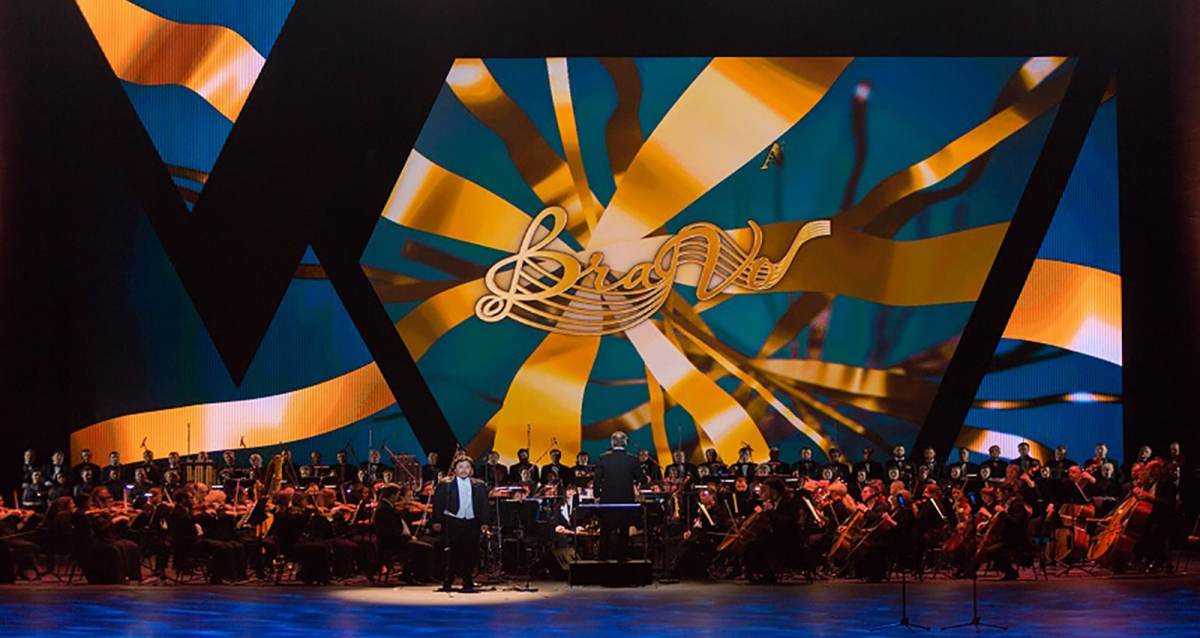There are some events that are embarrassing to be seen at; then there are others where you are embarrassed for the other people who show up. Events such as “BraVo,” the awards ceremony for international pop music and classical art, which took place for the first time in early March in Moscow, and whose name can surely only be meant ironically. The classical part of this colorful spectacle was reminiscent of a cross between the Oscars and the Eurovision song contest. “I went to the Bolshoi Theatre, and saw how officials and dilettantes, hidden behind the names of people with talent, amused themselves at the expense of state-owned companies,” wrote theater blogger Inner Emigrant afterwards. He continued, “It would have been better if they’d simply shot the money from the Theater Square into the sky with a big canon.”
Anna Netrebko, Svetlana Zakharova, Chibla Gersmawa, Dmitri Tcherniakov, and the late Dmitri Hvorostovsky—the Ministry of Culture wanted to gather all the great Russian stars. Many of them still shone on the Bolshoi stage, which had been pimped up to be as showy as possible (only adding to the feeling of a small-town event). Sumi Jo, Seiichi Furukawa, Liang Li and Amartuvshin Enkhbat were also smuggled in somehow, alongside José Carreras and Rod Stewart. Because he once played a manipulative choreographer in “Black Swan,” Svetlana Zakharova was presented with her award by Vincent Cassel. The event, supported by the Ministry of Culture and a handful of other government bodies, as well as the state-owned oil company Rosnef and—for some reason—the Abu Dhabi Tourism and Culture Authority, raised plenty of questions.
Let’s start with the results of the ceremony. The organizers promised a transparent vote, for which experts from the entire country would be consulted. Instead, the jury made their decisions behind closed doors. To appease the skeptics, Culture Minister Vladimir Medinsky read a greeting from Vladimir Putin on stage, which stated that “the criteria for nomination is the appraisal though the eyes of the spectators.” But how such appraisals took place, and how they influenced the decisions, remained unclear. Aside from that, “record sales, awards, and even internet clicks” were brought into consideration. It seems obvious this wasn’t really a jury of experts.
Cheap luxury, eulogies to sponsors and state benefactors, as well as a horde of invited guests and moderators who had trouble pronouncing the names of world-renowned artists—this is how the ceremony lost its balance. Still, “Brindis” from “La Traviata,” sung by Anna Netrebko and her husband Yusif Eyvazov, marked a high-point of the program. Those who are familiar with the state’s cultural agenda in Russia are no longer surprised by these kinds of events, but it’s still difficult to get used to. You’re a good artist if you earn a lot, and preferably, have a wide audience. For the BraVo prize, as written on the website, any artist could be nominated, so long as they had the potential to “reach an audience of three billion.” In a state where culture, whether serious or for entertainment, still belongs to the service sector at the legislative level, more is more.
Detailed questions become unnecessary when you find out who organized the event—a company called “White Nights of St. Petersburg,” owned by the music producer Vladimir Kiselev, who has been caught up in a number of financial scandals. For years, he was the director of a state-owned enterprise called Kremlin, which organized concerts by famous musicians for government officials, and which ceased operations in 2008. In 2011, Kiselev organized a benefit concert in St. Petersburg, featuring Hollywood stars and then-prime-minister Vladimir Putin. A children’s hospital, which should have benefited from the fundraising, is still waiting in vain for its money, despite a lawsuit related to the matter having since been closed. Even earlier, Kiselev was part of an organized criminal group led by Alexander Malyshev, the former godfather of the St. Petersburg mafia.
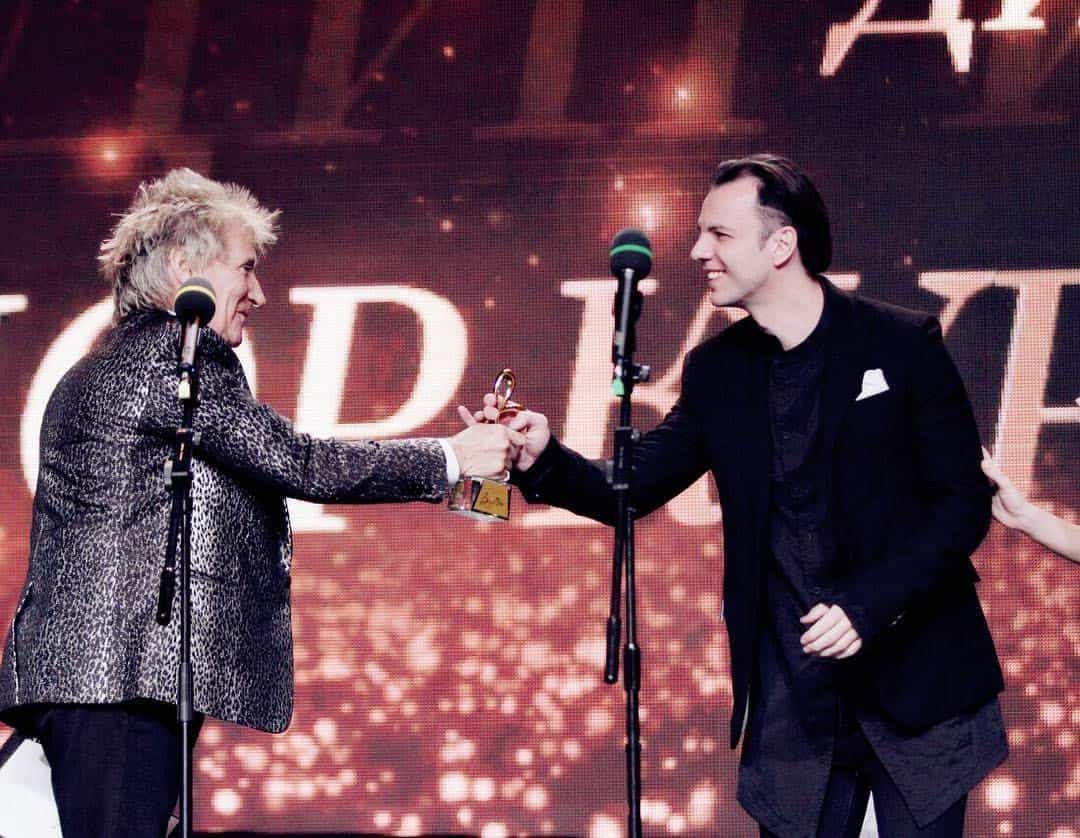
But nobody was interested in the BraVo awards because of the organizers. Instead, there was thunderous applause for Teodor Currentzis, who was awarded the prize for Conductor of the Year and Best Orchestra. During his acceptance speech, he mentioned casually that “this beautiful, showy event isn’t my kind of format, since I come from the country.” Subtle criticism or respectful adulation? He then invited everybody to Perm, and added: “It’s clear in our work that good taste is important.” In his circle of fans, the question of whether it was right for him to accept the prize was raised. “He was just good and went along, the new stage won’t build itself,” wrote one, referring to the planned new stage at the Perm Opera and Ballet Theater. Construction was announced in 2013, but due to an insufficient regional budget and defects in the building plans, it’s been delayed repeatedly.
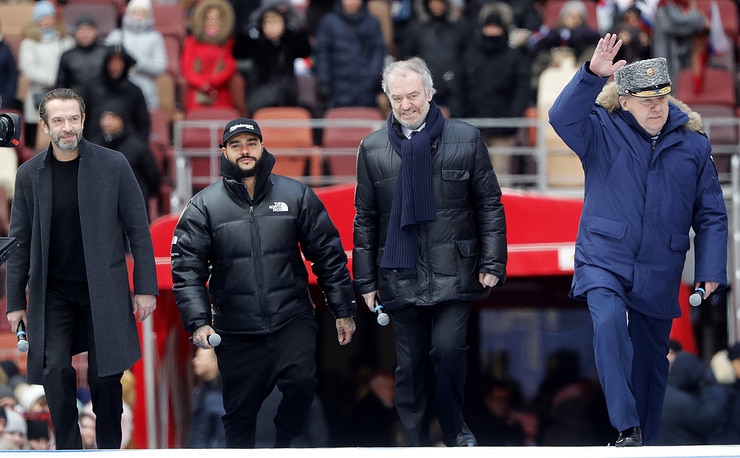
Valery Abisalovich Gergiev, on the other hand, has already achieved many of his construction goals, which is why it was more exciting for him to join in with Putin’s election campaign “for a strong Russia” in Moscow’s Luzhniki Stadium rather than attend award ceremonies, or—as originally planned—conduct Wagner’s “Siegfried” in St. Petersburg’s Mariinsky Theater. He was criticized for handing the conducting over to Christian Knapp because of the calendar collision, but only by a few modest art lovers. That the president’s confidant wanted to be “by his side” like many other pops stars, actors, and athletes seemed plausible to many.
Gergiev’s talent for befriending people of influence can only be envied. Alongside Putin, there’s Sberbank head Herman Gref, and the former Minister of Finance, Alexi Kudrin. And it’s seemingly worth it: in 2003, Gref and Kudrin were co-presidents of the so-called Gergiev Foundation, whose trustee board of around 40 members includes billionaires such as Gennady Timchenko and Alisher Usmanov, as well as the head of VTB bank and steel group Severstal. With an average contribution of around $500,000 per board member, the foundation generates approximately $20 million each year. Membership on the board is a matter of prestige, as well as being useful as a political access route: according to Kudrin, the entire board meets with Vladimir Putin one a year.
What is all the money for? Tours abroad, a collection of unique instruments, Gergiev’s own Mariinsky recording studio and label. Gergiev also used the money to finance two thirds of the Mariinsky III concert hall, and to organize two annual festivals, the Stars of the White Nights festival, and the Moscow Easter festival, which are also supported by the state. Even theater subsidies from the Ministry of Culture, as well as fees paid to the orchestra for its tours, are not paid directly to the theater, but to the foundation. Financial statements remain, of course, unpublished, despite the foundation having a legal obligation to do so.

Through gritted teeth, the Mariinsky II was built to Gergiev’s request, eventually costing the state 22 billion rubles (over $350 million). Over the course of nine years of construction, building costs doubled. Only towards the end of the works did the building stir up resistance in the city, amid views that it didn’t fit the historical center, and more closely resembled a shopping mall than a theater. The director of the St. Petersburg hermitage museum, Mikhail Piotrovsky, wondered, “How can there be so much money for such a monstrosity?”
And yet Gergiev’s reach became greater still: in 2016, the previously independent theater in Vladivostok, and in 2017, the independent Vladikavkaz theater, were taken under the Mariinsky’s fold.
“We had to learn to communicate, with sponsors and with the state,” explained Gergiev regarding the fruits of his talent. It is, of course, easier to negotiate when you’re the artistic director of an enormous theater and a world-famous cultural brand, whose “potential audience is three billion,” and who is committed to “cultural promotion to a mass audience,” as is publicly proclaimed. And—a fantasy for the Russian Ministry of Culture—Gergiev makes money: in 2015 alone, the Mariinsky theater made a net profit of 800 million rubles ($12.8 million). Gergiev, perennially the top-earning Russian cultural figure, took home 150 million rubles in 2017. His fortune now includes a 15 percent stake in Russian turkey-breeding firm Eurodon, a thank-you for introducing its founder Vadim Vaneev to VTB bank chairman Vladimir Kostin.
“If you want to get something going, contact the busiest man,” Gergiev once joked. In 2013, he suggested reviving the All-Russian Choral Society (ACS) to the President, and became head of the non-profit association, which regularly wins bids for state subsidies. In 2013, he made a winning proposal to prepare a children’s choir for the closing ceremony of the winter Olympic games in Sochi—an honor that cost taxpayers 150 million rubles. In 2014, the ACS were given 8.4 million rubles for a concert in Crimea. It might not come as a surprise that for some time now, Gergiev’s face can be seen in commercials for the gas firm Gazprom—because the world-famous maestro does so much for the culture of his country, and should represent it abroad. In Gazprom’s film for the UEFA Champions League, whose main sponsor is the conglomerate, Gergiev is seen together with the “people’s artist of Russia” Denis Matsuev, another friend of the president. Since 2011, Matsuev’s festival, Stars on Baikal, and Christmas concert have received a permanent funding grant from the Gazprom Dobycha Irkutsk subsidiary.
For those who don’t want to deal directly with the state, things are trickier. The business world remains as an alternative, where, instead of professional accomplishments, international prominence is what counts the most.
At the end of 2017, Sberbank became the main sponsor of musicAeterna and of the Diaghilev Festival in Perm. Previously, the ensemble had been mainly financed by the private, regional natural gas producer Novatek. The corporation’s owner, billionaire Leonid Michelson, could afford to invite the entire orchestra to appear at the 2017 Venice Biennale, where he’d organized an exhibition of Russian artists.
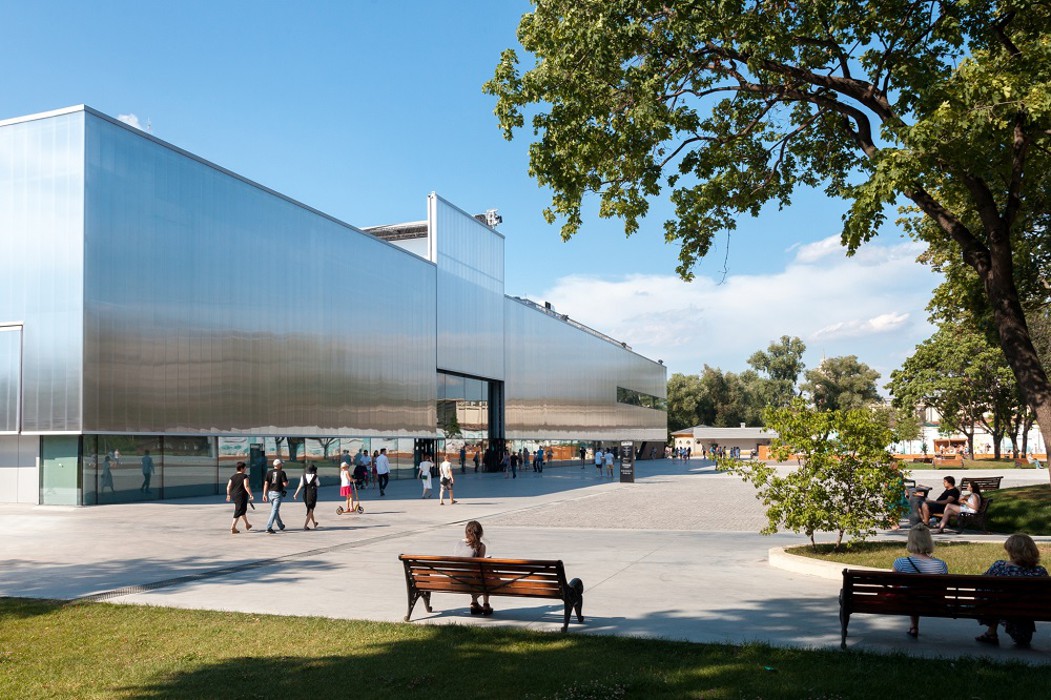
Roman Abramovich, too, a passionate ballet, drama, and Diana Vishneva admirer, has occasionally shown interest in Currentzis. So far, the oligarch and avid art collector has specialized mostly in contemporary fine art—the high-point of his interest was back in the good old days, when oil prices were on the up. In 2008, Abramovich created “Garage,” the largest independent cultural center and museum in Moscow. It cost him around 50 million euros. Just one year prior, the investment tycoon Roman Trotsenko turned an old factory building in central Moscow into Winzavod, a center for contemporary art. It was here that in 2011, while still under house arrest, Kirill Serebrennikov, together with Sergej Newski and Teodor Currentzis, held their ambitious “Platform” project, a combination of theater, dance, music, and media. At that time, former Minister of Culture Aleksandr Avdeyev was still trying to achieve greater state support for contemporary art. Today, one could say that contemporary art relies on the private initiatives of individuals, while the state is concerned with the conservation of old traditions.
In 2009, with money from billionaires Alexander Mamut and Serguei Adoniev, perhaps the best-known modern project, an institute for media, architecture and design called Strelka, was built. Today, it’s one of the world’s best architecture schools, with a yearly budget of around $10 million.
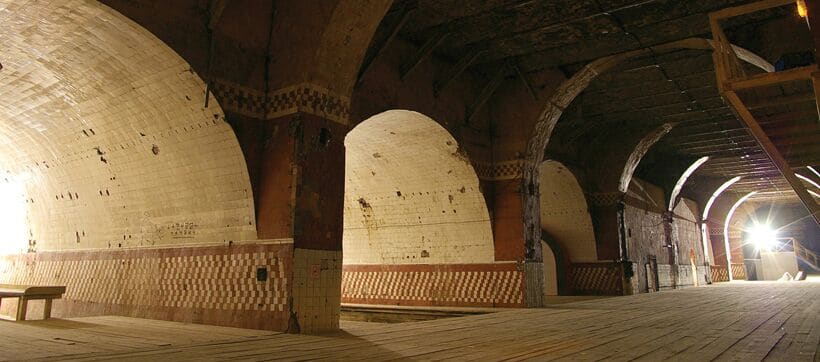
Whether such initiatives by Russian billionaires are driven by a selfless love of art is questionable. The Center for Political Economy, a Moscow think tank, suggests that the private sector prefers to invest money in places that bring the good PR needed for important business deals. For Alexander Mamut, a publisher and bookseller, as well as a figure in entertainment and film, Strelka makes a good promotional tool for business. In a similar vein, Roman Abramovich has to look after his image in Russia, where he has many assets. He recently reconstructed the New Holland Island in St. Petersburg, not far from the Mariinsky Theater, at a cost of over $400 million.
Although the historic site now boasts art galleries and music venues alongside boutiques and restaurants, it’s still considered a gift to the city more than a fully-fledged business project. And as long as similar projects meet the taste and interests of residents, the motive behind them is secondary. It’s just too bad music can’t hang on the wall.
The further development of this patronage culture is still uncertain, and there’s still no law that grants patrons tax advantages. Private donations are seen as altruistic, or as a form of purely metropolitan entertainment. At the International Theater Festival in Moscow, Dmitriy Aksenov, the founder of the non-profit Aksenov Family Foundation, was asked why Russian patrons like to support the Salzburg festival, rather than young festivals or artists in Russia. His answer: “People know, when they arrive at the festival in summer, it’s all-inclusive. Amusement, the best food, the best in art.” Some people are willing to pay more for that convenience. Russian artists, however, don’t have the option of getting everything they need to make their art at once. ¶

